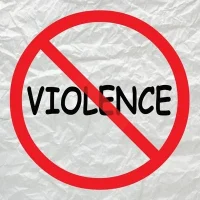Deadline: 7 July 2020
The European Union (EU) has announced a Call for Proposals to strengthen civil society organizations’ contribution to governance and development processes.
Objectives
The specific objectives for this call for proposals are:
- Specific objective 1: Increase the participation of CSOs in tackling climate change and mitigating its adverse effects
- Specific objective 2: Women’s participation in decision-making increased
- Specific Objective 3: The voice of youth in society is increased, including that of young people with fewer opportunities and having regards to the eleven Youth Goals proposed by young people in the EU Youth Dialogue process
Priority Areas
Under the above specific objectives and outputs, the priority of this call for proposals is to support and strengthen CSOs’ capacity to perform their roles as development actors, services providers and agents in policy processes, in coordination with the country’s relevant stakeholders, in the following areas:
- Climate change adaptation and mitigation and sustainable natural resources management, also for productive uses;
- Building capacity to mainstream climate change, disaster risk reduction and environmental sustainability and the pursuit of green growth into national and local development strategies;
- Gender equality, women and girls’ empowerment and participation;
- Strengthening policy dialogue on gender equality, human and women’s rights;
- Supporting monitoring, advocating and piloting more effective and inclusive youth employment and education strategies by offering decent work opportunities and chanc es of self – employment;
- Supporting the provision of spaces for young people to meet (“youth spaces”);
- Supporting youth organisations;
- Enhancing women and youth equal access to basic services, and their awareness raising, also in responding to global health threats, such as the current COVID 19 emergency;
Funding Information
- The overall indicative amount made available under this call for proposals is EUR 1.500.000. The Contracting Authority reserves the right not to award all available funds
- Size of grants
- minimum amount: EUR 300.000
- maximum amount: EUR 500.000
Duration
The initial planned duration of an action may not be lower than 24 months nor exceed 48 months.
Location
Actions must take place in the following country: Eritrea
Eligibility Criteria
Lead applicant Civil Society Organisations (CSOs):
- In order to be eligible for a grant, the lead applicant must:
- Be a legal person and
- Be non-profit-making and
- Be a specific type of organisation such as: non-governmental organisation, And
- Be established in one of the following eligible countries/territories/beneficiaries
- Member States, beneficiaries established in Annex I to the Pre-Accession Instrument (IPA II) and contracting parties to the Agreement on the European Economic Area, in the State of Eritrea;
- developing countries that are in the list of Official Development Assistance (ODA) recipients, which are not members of the G20 group, and Overseas Countries and Territories (OCTs);
- member countries of the Organisation for Economic Co-operation and Development (OCDE) in case of contracts implemented in Least Developed Countries or Highly Indebted Countries, as included in the list of ODA recipients.
- be directly responsible for the preparation and management of the action with the coapplicant(s) and affiliated entity(ies), not acting as an intermediary
Co-applicant(s)
- Co-applicants participate in designing and implementing the action, and the costs they incur are eligible in the same way as those incurred by the lead applicant.
- Co-applicants must satisfy the eligibility criteria as applicable to the lead applicant.
Affiliated entities
- The lead applicant and its co-applicant(s) may act with affiliated entity(ies) Only the following entities may be considered as affiliated entities to the lead applicant and/or to coapplicant(s):
- Only entities having a structural link with the applicants (i.e. the lead applicant or a co-applicant), in particular a legal or capital link. This structural link encompasses mainly two notions:
- Control, as defined in Directive 2013/34/EU on the annual financial statements, consolidated financial statements and related reports of certain types of undertakings:
- Entities affiliated to applicant may hence be:
- Entities directly or indirectly controlled by an applicant (daughter companies or first-tier subsidiaries). They may also be entities controlled by an entity controlled by an applicant (granddaughter companies or second-tier subsidiaries) and the same applies to further tiers of control;
- Entities directly or indirectly controlling the applicant (parent companies). Likewise, they may be entities controlling an entity controlling the applicant;
- Entities under the same direct or indirect control as the applicant (sister companies).
- Entities affiliated to applicant may hence be:
- Control, as defined in Directive 2013/34/EU on the annual financial statements, consolidated financial statements and related reports of certain types of undertakings:
- Membership, i.e. the applicant is legally defined as a e.g. network, federation, association in which the proposed affiliated entities also participate or the applicant participates in the same entity (e.g. network, federation, association) as the proposed affiliated entities.
- Only entities having a structural link with the applicants (i.e. the lead applicant or a co-applicant), in particular a legal or capital link. This structural link encompasses mainly two notions:
For more information, visit https://bit.ly/2zB34xT









































